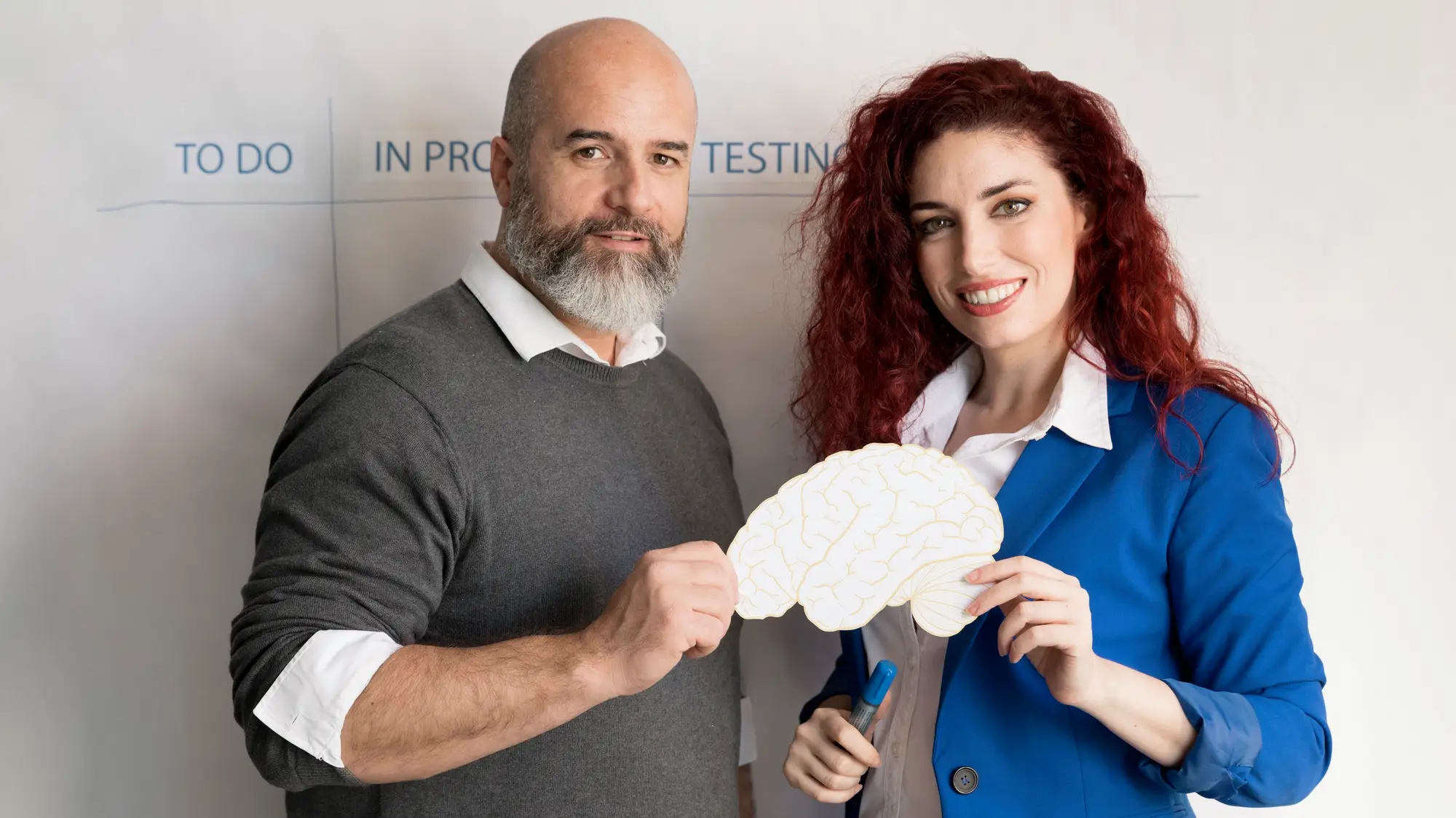A Whitepaper for UK Organisations
Executive Summary
Modern business is defined by volatility, disruption, and relentless change. In such an environment, mental toughness and resilience are no longer desirable “soft skills”, but strategic imperatives. Evidence shows mentally tough and resilient professionals adapt more quickly, maintain productivity under pressure, and drive sustained business performance. This whitepaper is a comprehensive guide for UK business leaders, HR professionals, and learning and development practitioners. It presents the science, benefits, and proven practices of resilience training and mental toughness development, together with practical strategies, UK-relevant resources, and actionable frameworks for building resilient organisations.
SEO focus: resilience training, building mental toughness, business resilience UK, professional resilience, stress management, workplace wellbeing, leadership resilience, resilient employees UK.
Table of Contents
- Introduction: The Business Case for Mental Toughness
- Defining Mental Toughness and Resilience
- Why Mental Toughness Matters in UK Workplaces
- Key Components of Mental Toughness
- The Science: Resilience, Performance and Wellbeing
- Mental Toughness vs. Burnout: Understanding the Difference
- Assessing Mental Toughness: Tools and Models
- Practical Resilience Training Approaches
- Mental Toughness Strategies for Leaders and Teams
- Integrating Resilience Training into Workplace Culture
- Measuring and Sustaining Resilience Gains
- UK Case Studies: Resilience in Action
- Further Resources and UK-Relevant Links
- Conclusion: Future-Proofing Business Through Mental Toughness
Introduction: The Business Case for Mental Toughness
The rapid shifts of the post-pandemic era, technological disruption, economic fluctuations, and new hybrid working models have made resilience and mental toughness essential skills for business professionals. According to the Chartered Institute of Personnel and Development (CIPD), UK organisations that invest in resilience training see improvements in productivity, engagement, and employee retention.
Businesses with resilient workforces are better able to:
- Navigate uncertainty
- Sustain high performance under stress
- Recover from setbacks swiftly
- Foster innovative thinking and growth mindsets
Resilience is not a fixed trait, but a skillset—grounded in mental toughness—that can be cultivated at every level.
Defining Mental Toughness and Resilience
What Is Mental Toughness?
Mental toughness describes an individual’s ability to consistently perform towards the upper range of their talent and skill regardless of competitive circumstances. (Clough & Strycharczyk, 2002)
It encompasses:
- Emotional control
- Optimism
- Goal focus
- Persistence
- Confidence in adversity
What Is Resilience?
Resilience is the psychological ability to adapt to stress, recover from setbacks, and bounce back from difficult experiences, whilst maintaining wellbeing and purpose.
Key distinction: Resilience is how well you recover; mental toughness is how well you persist and perform under pressure.
For further reading, see NHS: Building Resilience.
Why Mental Toughness Matters in UK Workplaces
- Rising job demands and rapid change increase risk of burnout.
- Workplaces that support resilience are more likely to retain top talent and achieve higher employee engagement.
- UK business leaders highlight adaptability and resilience as top skills for future leadership (Institute of Leadership & Management).
“Mentally tough professionals are more productive, creative, and less likely to experience stress-related illness.”
— CIPD Wellbeing at Work report
Commercial Benefits
- Reduced absenteeism and presenteeism
- Higher productivity and discretionary effort
- Improved workplace morale and innovation
- Faster adaptation to change and disruption
Key Components of Mental Toughness
The most widely used model is the 4Cs framework by Clough & Strycharczyk (MTQ48):
- Control (Feeling in control of life and emotions)
- Commitment (Ability to set and achieve goals)
- Challenge (Viewing adversity and pressure as opportunities to grow)
- Confidence (Self-belief and confidence in others)
For more details, visit AQR International – Mental Toughness
The Science: Resilience, Performance and Wellbeing
Research findings:
- Employees with high mental toughness cope better with ambiguity, engage more in problem solving, and show quicker recovery from setbacks (University of Hull, 2010).
- Resilience training reduces stress and increases job satisfaction for managers and front-line staff (British Psychological Society).
- Mental toughness correlates positively with leadership effectiveness and employee engagement (Journal of Workplace Behavioral Health, 2014).
UK businesses investing in mental toughness programmes often report improved staff wellbeing scores, innovation rates, and reduced turnover.
Mental Toughness vs. Burnout: Understanding the Difference
Burnout
Emotional exhaustion, cynicism, and reduced professional efficacy resulting from chronic workplace stress (WHO ICD-11).
Mental Toughness as a Buffer
- Helps individuals adapt more positively to high workload and change.
- Shields against chronic stress by fostering positive coping mechanisms.
Caution: Mental toughness should not be equated with “always coping alone”—organisational support, reasonable workloads, and wellbeing resources are vital.
Assessing Mental Toughness: Tools and Models
MTQ48 Measure
- A validated psychometric tool.
- Assesses the 4Cs (Control, Commitment, Challenge, Confidence).
- Used by organisations, coaches, and L&D teams.
Learn more about MTQ48
Resilience Scales
- Resilience at Work (R@W) toolkit
- CIPD wellbeing diagnostic tools (CIPD’s Health and Wellbeing at Work)
Individual and Team Assessments
- Self-report questionnaires
- 360-degree feedback on behaviour under pressure
- Stress mapping for teams and functions
Practical Resilience Training Approaches
Psychoeducation
- Training on the science of stress and resilience.
- Normalising stress responses and learning positive reframing.
Cognitive-Behavioural Techniques (CBT)
- Challenging unhelpful thoughts and replacing them with more resourceful beliefs.
- Problem-solving training and “thought distancing”.
Mindfulness and Self-Awareness
- Developing techniques for emotional regulation.
- Mindfulness meditation, breathing exercises, and body scans.
Visit Mindful Employer UK for business-led wellbeing resources.
Strengths-Based Coaching
- Identifying personal and team strengths.
- Building confidence through recognition of achievements.
Goal Setting and Commitment
- Training on SMART goal setting and accountability.
- Building commitment muscles through regular progress check-ins.
Social Support and Networking
Peer resilience groups, buddy systems, and team check-ins.
Exposure and Challenge Training
- Gradual “stretch zone” activities to boost tolerance for discomfort and risk.
- Scenario planning and crisis simulations.
Mental Toughness Strategies for Leaders and Teams
For Leaders
- Model mental toughness: Share personal stories of overcoming setbacks and stress.
- Practice transparent communication: Reduce uncertainty for teams.
- Foster psychological safety: Allow employees to raise concerns and learn from mistakes without fear.
- Encourage regular feedback and reflection.
For Teams
- Embed routine check-ins: Focus on both achievements and wellbeing.
- Celebrate learning from failure: Make “what went wrong?” part of project debriefs.
- Provide access to resilience training: Both formal and informal channels.
- Leverage team diversity: Harness different coping and problem-solving styles.
For HR and L&D
- Build resilience into induction and ongoing development programmes.
- Promote access to Employee Assistance Programmes (EAPs) and digital wellbeing platforms.
- Reward not just performance, but adaptability and “bounce-back” behaviour.
Integrating Resilience Training into Workplace Culture
Principles for Success
- Leadership endorsement: Senior management must champion resilience openly.
- Integrate into policies and practices: Goal setting, performance management, and leadership development.
- Tailor to your context: Address unique pressures—sector, remote work, pace—within training design.
- Normalise conversations about stress and coping: Training is more effective when stigma is absent.
- Provide ongoing development: One-off events alone do not embed toughness or resilience.
The Mental Health at Work toolkit offers sector-specific UK guidance.
Measuring and Sustaining Resilience Gains
Metrics
- Attendance and engagement in training programmes
- Pre- and post-assessment of mental toughness or resilience scales
- Reduction in absenteeism, presenteeism, and EAP usage rates
- Employee engagement and wellbeing survey results
- Qualitative feedback in exit interviews and staff meetings
Sustaining Gains
- Run regular refresher training and “resilience clinics”
- Maintain resilience champions networks or peer support groups
- Continue leadership communication on resilience as a business priority
- Celebrate resilience-related achievements (not just outcomes)
UK Case Studies: Resilience in Action
NHS Frontline Staff
Widespread resilience and mental toughness training was provided during the COVID-19 crisis, focusing on CBT techniques, peer support, and leadership communication. Resulted in reduced staff burnout and higher engagement, even in the face of relentless pressure (NHS England).
Big Four Accountancy Firm
Implemented large-scale resilience workshops for consultants facing deadline and client pressure. Combined toolbox sessions, digital platforms, and leader role-modelling. Follow-up indicated a 15% reduction in stress-related absences and increased client satisfaction scores.
UK Retail Chain
Targeted resilience development in store managers dealing with organisational transformation. Strategies included scenario training, mental toughness self-assessment, and team-based exercises. Improvements included increased adaptability and more successful change rollouts.
For more examples, visit Engage for Success: Case Studies.
Further Resources and UK-Relevant Links
- CIPD Wellbeing Hub
- Mind UK – Building Resilience
- Mental Health Foundation – Resilience
- AQR International – Mental Toughness
- British Psychological Society – Wellbeing at Work
- NHS – Every Mind Matters
- Mental Health at Work – Toolkits
- HSE – Stress Management Standards
Recommended reading:
- “Developing Mental Toughness” by Doug Strycharczyk & Peter Clough
- “Option B: Facing Adversity, Building Resilience, and Finding Joy” by Sheryl Sandberg & Adam Grant
- “The Resilience Factor” by Karen Reivich & Andrew Shatté
Conclusion: Future-Proofing Business Through Mental Toughness
Mental toughness is not innate; it is trainable and essential for professional longevity and business success. In the unpredictable world of modern work, resilience is the ultimate competitive advantage. Businesses that actively invest in resilience training are rewarded with engaged, adaptable, high-performing teams able to thrive through adversity.
Adopt a whole-organisation approach, ensure leadership walks the talk, and embed mental toughness at every level for a more robust future.









